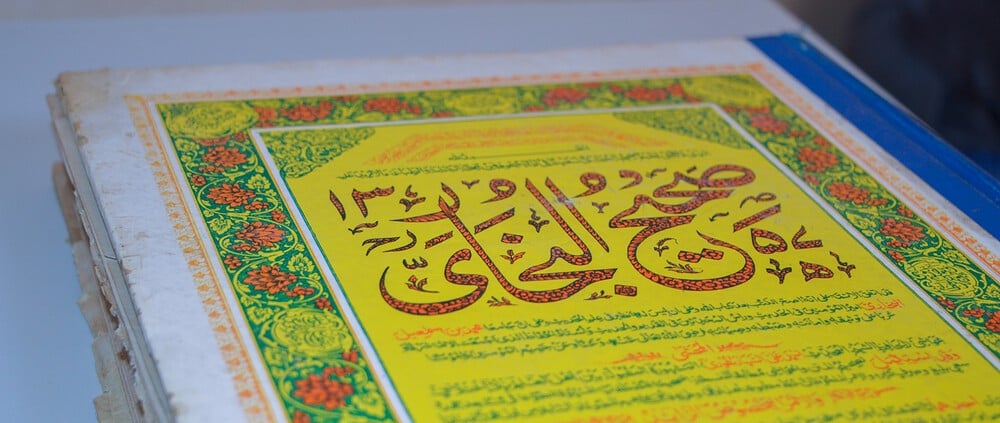What Is an Authentic Hadith (Al-Hadith Al-Sahih)?
Answered by Shaykh Dr. Muhammad Abu Bakr Badhib
Question
What is an authentic hadith (al-hadith al-sahih), and what are its conditions?
Answer
In the name of Allah, and all praise is due to Allah, and blessings and peace be upon our master Muhammad, the Messenger of Allah, his Family, his Companions, and those who follow him.
The term “authentic hadith” (al-hadith al-sahih) is a technical term specific to the Science of Hadith, both in terms of narration and understanding. It has specific definitions among scholars of hadith, which will be addressed below in detail.
The term “al-hadith al-sahih” among hadith scholars and those engaged in the science of hadith terminology has two applications:
The First Is a General Application:
It includes mutawatir (consecutively transmitted hadith), sahih li-dhatihi (authentic by itself), sahih li-ghayrihi (authentic by other than itself), and hasan (good).
Hafidh Ibn Hajar: “Know that most hadith scholars do not distinguish hasan from sahih.” [Ibn Hajar, al-Nukat ‘ala Ibn al-Salah]
The Second Is a Specific Application:
It is the well-known definition in the science of hadith, including only sahih li-dhatihi and sahih li-ghayrihi. It is defined as:
“A hadith narrated by a reliable (thiqa), with complete precision (dabt), through a continuous chain of narration (sanad muttasil), and it is neither irregular (shadh) nor flawed (mu‘allal) with a significant defect. If the precision is light and not complete, it is termed ‘hasan li-dhatihi’ (good by itself), but if it has multiple chains of narration, it is considered ‘sahih li-ghayrihi’ (authentic due to other narrations).” [Ibn Hajar, Nukhbat al-Fikr]
Conditions
From the definition of Authentic Hadith, we deduce the conditions that must be met:
- The reliability of all narrators in the chain.
- Complete precision of the narrators in what they report.
- Connectedness of the chain of narration from beginning to end.
- The hadith must be free from any irregularity in the chain and text.
- The hadith must be free from any significant flaw in the chain and text.
These (five) conditions were derived by hadith scholars from their practical engagement with the chains of narration used in transmitting hadith, and they distinguish between authentic and non-authentic hadith based on these.
Imam Shafi’i (Allah have mercy on him) said:
“Evidence is only valid when it meets several criteria, including the narrator must be reliable in their religion, known for their honesty in their transmissions, rational about what they narrate, knowledgeable about the implications of the hadith’s meanings from its words, and must narrate the hadith as they heard it in its exact words, not by its meaning; because if they narrate by meaning while not knowing how it changes its implication, they might change what is lawful into unlawful.
Moreover, if the narrator recounts the hadith in its original wording, there is less risk of distortion, ensuring the transmission is preserved accurately, whether from memory or from written records.
Additionally, if the narrator’s account aligns with that of other scholars who memorize hadith, it is further validated, Importantly, the narrator must not be a mudallis, someone who narrates from someone he met but did not hear from, and narrates about the Prophet (Allah bless him and give him peace) what the trustworthy narrate differently about the Prophet.
And so it should be from above him from whom he narrated until the hadith is connected to the Prophet (Allah bless him and give him peace) or to someone below him.” [Shafi‘i, al-Risala]
When these conditions are met in a hadith, it is an Authentic Hadith by the consensus of the scholars, as transmitted by Ibn Salah (Allah have mercy on him). [Ibn Salah, al-Muqaddima; Dhahabi, al-Muqiza]
Based on what has been mentioned, it is incumbent upon a Muslim who is diligent about his religion to learn the technical terms that reveal the magnificence of Islamic Sciences and the precision of Muslims in dealing with the Prophetic Hadith that have been transmitted to us throughout history.
Allah is the Bestower of success and the Guide to the right path.
[Shaykh] Dr. Muhammad Abu Bakr Badhib
Shaykh Dr. Muhammad Abu Bakr Badhib is a prominent Islamic scholar from Yemen born in Shibam, Hadhramaut, in 1976. He received his degree in Shari‘a from Al-Ahqaf University, a master’s degree from the Islamic University of Beirut, and a PhD in Usul al-Din from Aligarh Muslim University (AMU).
He studied under great scholars such as Shaykh al-Habib Ahmad Mashhur al-Haddad, Shaykh Fadl Ba‘ fadl, Habib Salim al-Shatiri, Habib Ali Mashhur bin Hafeez, and others. He has served as the Director of Publications at Dar al-Fiqh, the former Deputy Director of Cultural Relations at Al-Ahqaf University, a former Assistant for Employee Affairs at Atiyah Iron Company, a researcher at the Sunna Center affiliated with the Dallah al-Baraka Foundation, and a researcher at Al-Furqan Foundation’s Makka al-Mukarrama and Madina al-Munawwara Encyclopedia branch.
Currently, he is a researcher at Al-Furqan Foundation’s Makka al-Mukarrama and Madina al-Munawwara Encyclopedia branch, teaches traditionally through the Ijaza system at Dar al-Fuqaha in Turkey, supervises the Arabic department at Nur al-Huda International Institute (SeekersGuidance), and is a member of the Board of Trustees of the Manuscript House in Istanbul.
His works include “The Efforts of Hadhramaut Jurists in Serving the Shafi‘i School,” “Contributions of Hadhramaut Scholars in Spreading Islam and its Sciences in India,” “Hada’iq al-Na‘im in Shafi‘i Fiqh,” in addition to verifying several books in Fiqh, history, the art of biographies, and Asanid (chains of narration).
